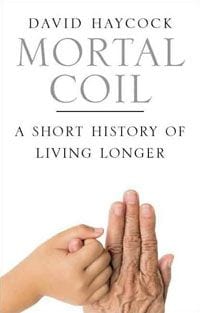
Every year, Duquesne University hosts a phenomenology symposium where luminaries in philosophy, psychology, anthropology, and other humanities disciplines present some of the more exciting lectures in modern academia. This year’s conference was structured around the problem of post-humanism or how, in our quest to prolong our lives and enhance them with technology, we change or stray from what it is to be human.
During one of the lectures, John Caputo, a University of Syracuse philosophy professor, noted that we should not bear anxiety towards the proliferation of technology because artifaction is an essential character of humanness; to modify our lives with tools and inventions does not defy what it is to be human, such modifications are what it is to be human. Our tools and devices set us apart from other animals.
Such an argument is one that should be more often taken to heart. The profuse wringing of hands about whether or not we are doing violence to humanity in our tech-objectives only serves to hinder social progress. Furthermore, advocates of the “anti-technology” position are truthfully just trying to preserve another social order in which their inventions, equally artificial although perhaps older, take precedence. It is a sly manipulation of social order under the guise of luddite-ism.
I can give David Boyd Haycock’s Mortal Coil, a book about the history of prolonging our life spans, no greater compliment than to affirm that it falls in line with John Caputo. In the volume’s 300-some pages, Haycock never falters or qualifies his history in fear that our drive to live longer is a move away from what it is to be human. Although he does entertain the debate, such a move is only to flesh out his history.
Furthermore, for a book that eschews sensationalism to the sublime extent that Mortal Coil does, it is a fascinating and engaging read. Haycock’s enthusiasm for his topic spills into his recounting of subject matter which, otherwise, could easily be construed as mundane. Instead of a dry commentary, Haycock’s tome playfully and rigorously charts a narrative from Francis Bacon to Aubrey De Grey. From its first anecdote, an account (full of David Sedaris-esque incredulousness) of Bacon’s contracting of a fatal illness when trying to stuff a rabbit with snow, Mortal Coil never misses a beat.
If hard pressed for an objection, I would have to admit that Haycock’s optimism, at times, becomes oppressive. Haycock’s is unwilling to countenance anything more than a nominal suggestion that we may not be able to eclipse our current life spans and that, if we do, it may not be a positive development. Although such progress would do nothing to endanger our humanity and, presumably, could be carried out in such a way that we stay relatively young, issues such as over population and the generational stagnation imposed by longer lives are not given adequate attention.
However, I am reminded that Haycock is not writing his treatise on living longer. He is composing a summa of other intellectuals progress towards such an end. The divine grand design of his book is that it couches the quest for longer life as an important and consistent undercurrent to human history. To wit: Haycock shows convincingly that the quest for long living is not some fragment of the story of man, it is woven throughout.
Haycock’s broad history shows how this one end touches all disciplines. Although such a unity may be overly charitable it does compose a fascinating tale. Mortal Coil is fully successful in managing to drum up excitement for the future of human development while steering clear of propaganda.

![Call for Papers: All Things Reconsidered [MUSIC] May-August 2024](https://www.popmatters.com/wp-content/uploads/2024/04/all-things-reconsidered-call-music-may-2024-720x380.jpg)



